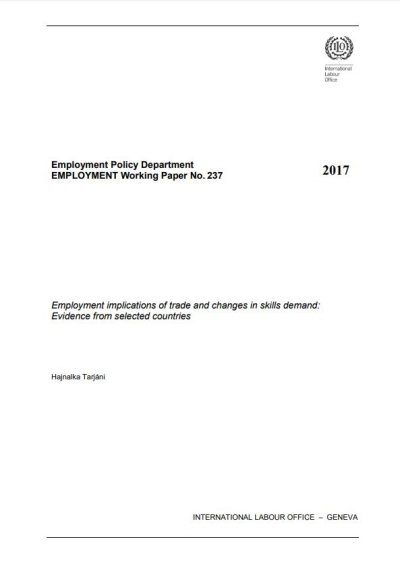
The UNESCO-UNEVOC International Centre: Who We Are | What We Do | Working With Us | Get in Touch
The UNEVOC Network: Learn About the Network | UNEVOC Network Directory
For Members: UNEVOC Centre Dashboard
Thematic Areas: Inclusion and Youth | Digital Transformation | Private Sector Engagement | SDGs and Greening TVET
Our Key Programmes & Projects: BILT: Bridging Innovation and Learning in TVET | Building TVET resilience | TVET Leadership Programme | WYSD: World Youth Skills Day
Past Activities: COVID-19 response | i-hubs project | TVET Global Forums | Virtual Conferences | YEM Knowledge Portal
Our Services & Resources: Publications | TVET Forum | TVET Country Profiles | TVETipedia Glossary | Innovative and Promising Practices | Toolkits for TVET Providers | Entrepreneurial Learning Guide
Events: Major TVET Events | UNEVOC Network News

| Author/s: | Hajnalka Tarjáni |
| Publisher/s: | International Labour Organization |
| Published: | 2017 |
| Licence: | Standard copyright - All rights reserved |
This paper provides a synthesis report of the country papers and aims to provide analysis on the implications of international trade on employment and skills demand in selected countries, including Cambodia, Ghana, Jordan, Malawi, Morocco, Myanmar, the Philippines, Tunisia and Viet Nam. These countries are at different stages of opening up to trade and integration into the global economy, and pursue different strategies to realize growth through trade. The paper looks at trends in exports between 2000–2015, and discusses the direct and indirect effects of exports on production and employment in interconnected sectors of the domestic economy. Subject to the limited availability of labour market data from most of these countries, the paper seeks to identify corresponding changes needed in employment structures, strategies and institutions, and summarizes information on existing skills imbalances.